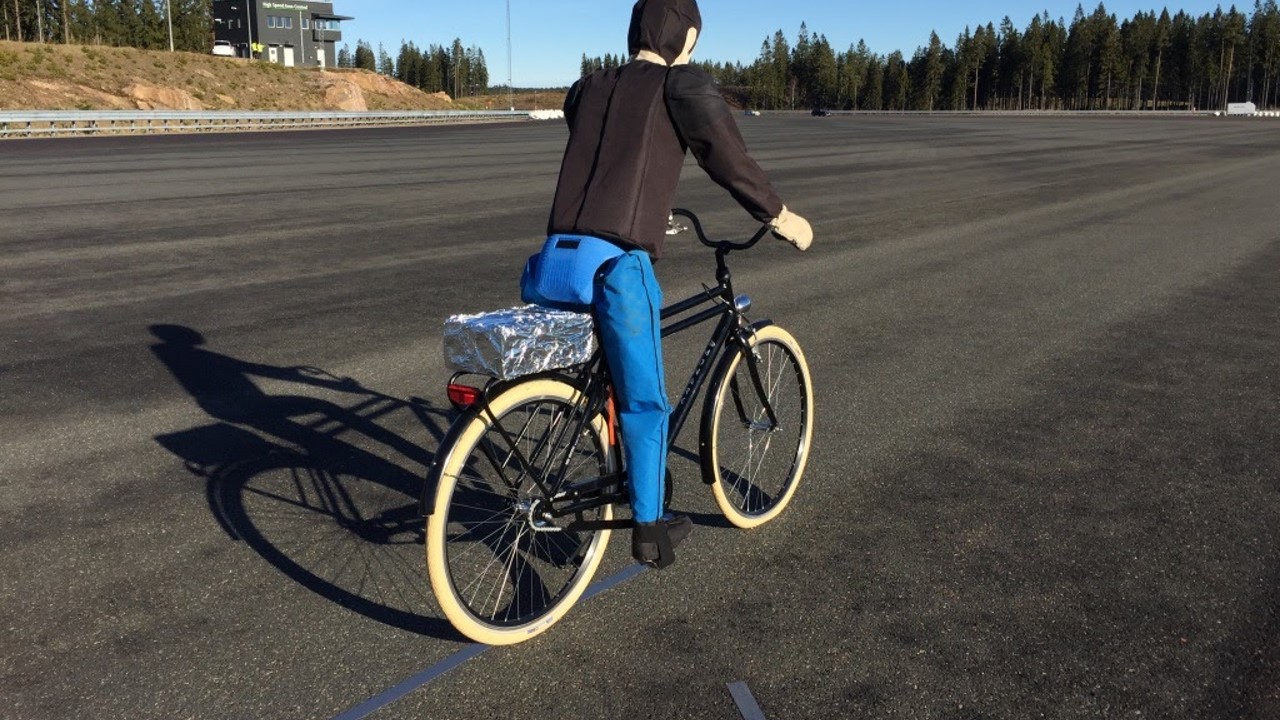Self-driving bicycles for testing of future safety systems is being developed in new associated SAFER project
In this project, an automated bicycle dummy is being developed for tests of active safety systems to be used for more realistic bike maneuvers, roll and wiggling. Repeatability compared with a human biker and the possibility of letting the vehicle collide with the test object are also important assets.
A major challenge for traffic safety researchers is to find appropriate test methods that simulate real conditions and are repeatable. One such example is tests where vehicles interact with bicycles in a realistic way. Through the recently associated project “Autobike” (with the formal name Self-driving bikes for more realistic development and testing of, in vehicle, systems for bike safety) the researchers aim to be able to develop better opportunities, which in turn can accelerate the development of future safety systems and self-driving vehicles. The goal of this project is to develop autonomous bicycles that can follow a predefined path predictably and consistently. Such a bicycle can then be used in tests where it carries a dummy and the vehicle’s safety systems is evaluated.
A self-driving bike is more realistic than other test objects simulating real bicycle tests since it can wiggle, its front-wheel has a steering angle in the curves, and there is a roll angle following the dynamic of the bike. To get these features behaving lifelike are important for the in-vehicle safety system trying to predict the imminent maneuver of the biker. Hence, repeatable tests containing these features is vital to validate these safety functions and to develop bikes with these capabilities are one of the main goals of the project.
The project is expected to result in several prototypes of bikes, including portable equipment that can be put on any bike to make it self-driving. Some examples of research activities being addresses in this project:
• Modelling and identification of speed dependent bike dynamics
• Accurate state estimation
• Real-time implementation
• Practical aspects, e.g. being able start the test procedure from zero speed
• Development of a destructible and modularized bicycle
The project partners are Chalmers, Mälardalens Högskola, Volvo Cars, Veoneer, Autoliv, Cycleurope and AstaZero. The project is funded by Vinnova and will preliminarily end in March 2024. Jonas Sjöberg, Chalmers University is leading the project and Yixiao Wang is PhD student working in the project. To that, many students have contributed to the development in their project courses and master thesis projects. The host of the project at SAFER will be the research area for Systems for accident prevention and automated driving.
You can read more about the project and test scenarios below.

